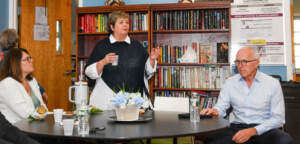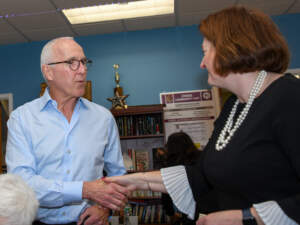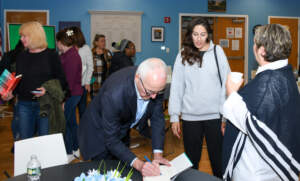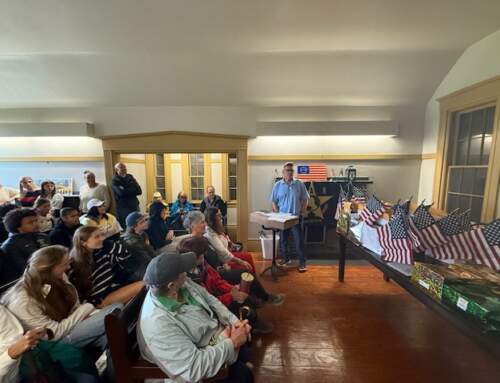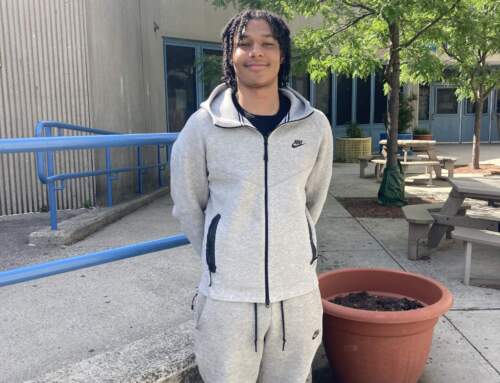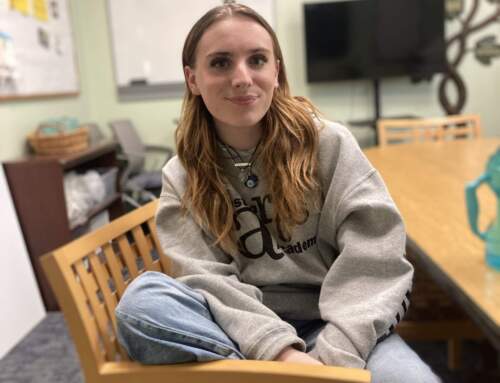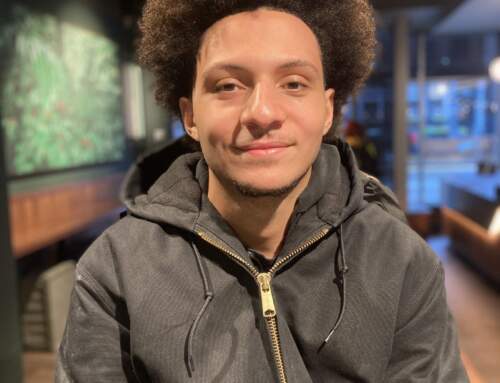By Ginger DeShaney
The Internet as we know it is broken, according to the book “Our Biggest Fight.”
Renowned author, advocate, and Project Liberty founder Frank H. McCourt’s latest book delves into the alarming consequences of technology on today’s youth, shedding light on its role in exacerbating mental health challenges, fostering a sense of isolation, and leading to teen suicide.
As a longtime ally and former board president of the South Boston Neighborhood House (SBNH), McCourt visited South Boston to bring his message to the neighborhood, spark meaningful dialogue, and drive collective action. By hearing directly from parents and community members, he hopes to glean valuable perspectives that can inform effective strategies for addressing technology’s adverse effects on youth mental health.
SBNH Executive Director Kathy Lafferty welcomed about 30 people to the Ollie Friday night for the discussion. “I’ve always known Frank to be a visionary. I’ve always known him to be a forward thinker and to be able to pull people together when he believes in something. I’m really happy to welcome him back.”
McCourt said he was happy to be back in South Boston because “I know this community can start things happening.
“Our intention is to have a conversation with you all and try to process a few things together,” McCourt said. “We want to learn from you in terms of what’s really going on.”
McCourt’s work is a clarion call for action, urging society to confront the detrimental effects of technology on our children. He and co-author Michael Casey explore how pervasive screen time, social media pressures, and digital distractions are contributing to a growing mental health crisis among youth, often with devastating outcomes.
“Project Liberty is about reimagining the way the Internet works,” he said, “so that we all kind of reclaim our personhood, reclaim our data, and not be in a situation where we kind of feel out of control, helpless, and for some, even worse.”
McCourt, who is executive chairman of McCourt Global, said we could have the best ideas for how you fix a broken Internet, but “it won’t matter unless we create a groundswell around a demand for change and a real movement.”
After showing a video in which parents talked about how social media changed their kids, how cyberbullying led to suicides, how “viral” challenges led kids to do dangerous stunts, McCourt opened up the conversation.
Here are some of the comments from those in attendance:
- One grandmother limits the time her granddaughter can be on the Internet. “Every time I let her get on the Internet to watch a movie, to do whatever, and it was time to stop, it was a big blowup every single time.”
- An after-school teacher noted: “They’re addicted to the screen in front of them. And you’re starting to see it in the posture, you’re starting to see it when you’re having to remove them from it.”
- It will be a balancing act because so much of what happens in school and work involves the Internet.
- One mother commented: “We need to be afraid of the system, and that’s scary. We need to be afraid of online predators, and that’s scary. But the fact is that kids also need to be wary of their peers and people who are supposed to be their friends. And the power that they yield with the platforms that are out there, it’s just appalling.”
- Kids aren’t the only ones affected by the Internet. Adults get addicted to it, as well.
- It’s the parents’ job to put guardrails in place regarding Internet usage.
- One person pointed out that the Internet listens to what people are saying. McCourt asked if anyone experienced talking about something in person and then seeing ads and such related to that topic pop up on the Internet. Everyone in the room raised their hands.
- Seniors are getting scammed on the Internet.
- There are so many mental health issues going on with children and adults that pediatricians, mental health providers, and parents need to be on board. “And you have to bring this to the world’s attention,” one person said.
The book describes a groundbreaking solution: a “third-generation Internet that would replace the status quo with a new model marked by digital property rights, autonomy, and ownership.”
“It’s very much part of our lives,” McCourt said about technology and the Internet. “So if it’s going to be such a part of our lives, shouldn’t it be something that is a positive, useful, constructive part of our lives, rather than something that we need to protect people from? Anything that you need to protect people from is probably not inherently right. So this is about problem solving.”
